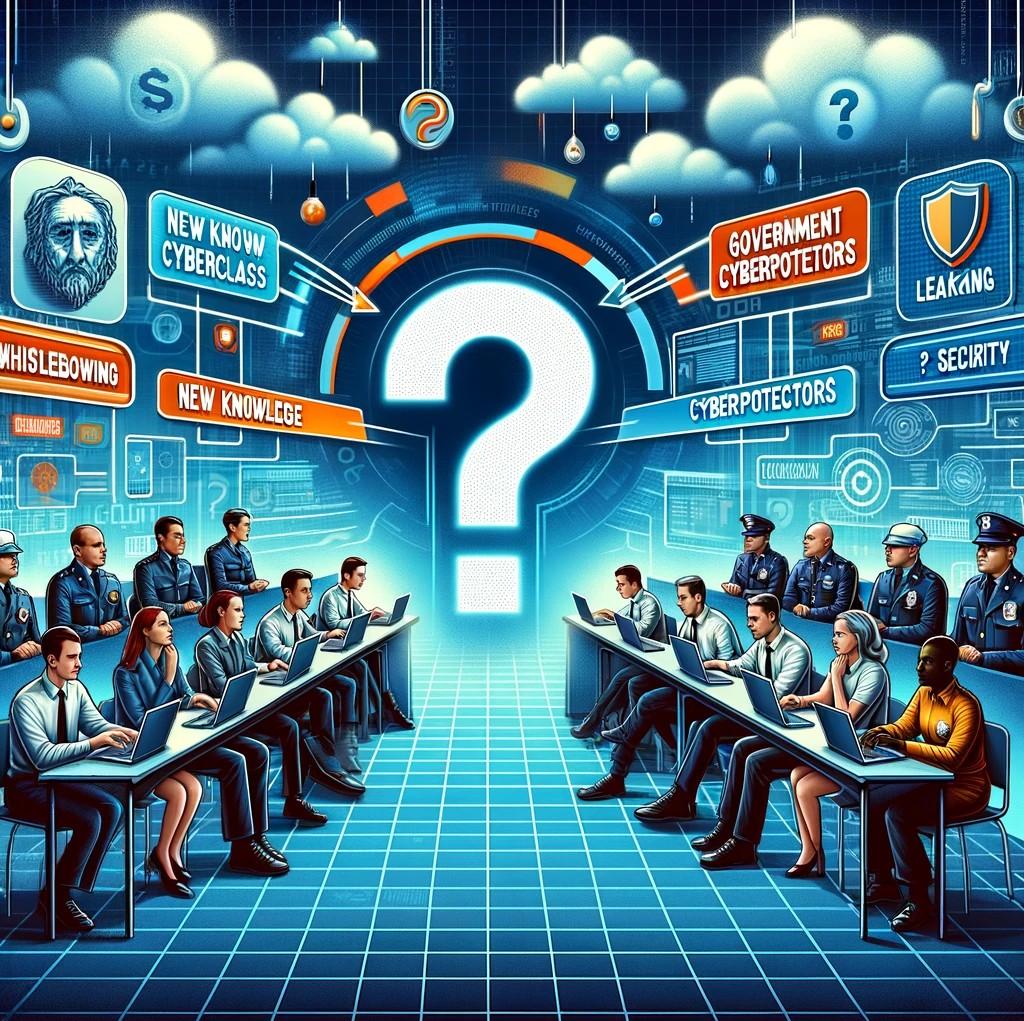Whistleblowing or Leaking? The “New Knowledge Cyberclass” and the “Government CyberProtectors”
Balancing national security with the public's right to information
Dr. Emanuel Boussios & Yulia Erdyv


Balancing national security with the public's right to information
Dr. Emanuel Boussios & Yulia Erdyv


• Our research delves into the dynamics between individuals known as "Whistleblowers" — part of what we term the New Knowledge Cyberclass (NKC) — and state actors, referred to here as Government CyberProtectors (GCP). This research aims to explore the distinct roles that whistleblowing and leaking play in strengthening democratic values.
Since the 9/11 attacks, various administrations have grappled with the intricate balance of national security. Notable figures who have emerged in this context include:
• For the NKC: Edward Snowden, Chelsea Manning, Julian Assange, Katharine Gun, and others, with a nod to earlier influences like Daniel Everette Hale. Reality Winner also features as a pivotal personality.
• Representing the GCP: Figures such as Barack Obama, Michael Hayden, and Mike Pompeo play crucial roles in this narrative.
In discussions about whistleblowing and leaking, there's a clear conflict between the public's right to be informed and the necessity for governmental confidentiality. In a democratic context, whistleblowing is typically praised as a brave move and a fundamental aspect of transparency. However, leaks are often portrayed negatively by governmental bodies, seen as violations of trust and potentially damaging to national security.
• Theoretical Perspectives
The discourse of the Government CyberProtectors (GCP’s) is
• Data Collection and Analysis: Engaged in qualitative analysis, reviewing a broad range of materials such as journal articles, books, personal interviews, online content, and official government documents.
• Resource Types:
Primary Resources: Statements and communications from the NKC and GCP groups, including in-depth interviews, official records, and reports from various media outlets.
Secondary Resources: Educational writings and studies on subjects related to surveillance, intelligence operations, and the governmental role in these areas.
• Reporting on Research: Commitment to provide weekly reports detailing observations and insights concerning the role of different actors in the protection of government intelligence in the era of digital information.
Results: Achieving a balance is crucial: It's important to have a fair approach that protects people who report wrongdoings while also keeping national security in mind.
Each leader's stance can be assessed through deterrence theory, which posits that the deterrence of criminal behavior hinges on the balance between its costs and benefits. This balance entails potential rewards for whistleblowers vs. risks, i.e., retaliation and job loss. Hayden's position on measures to support whistleblowers is ambiguous, while Obama's support amplifies the benefits, and Pompeo's criticism heightens the costs. Future research should delve into whistleblowers' motivations and the factors influencing their decisions to aid policymakers in creating more effective leak prevention strategies while protecting whistleblowers' rights, including addressing leaks by
